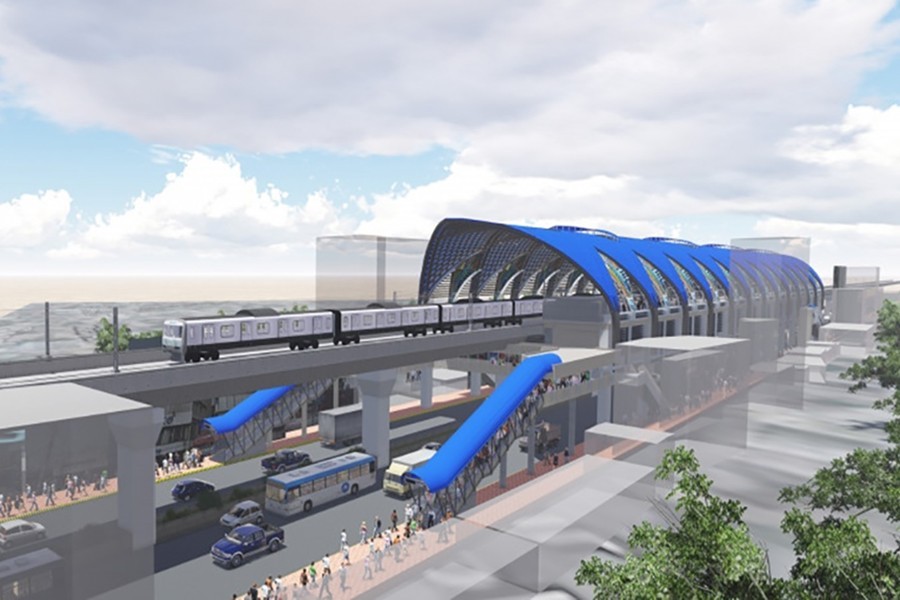
Published :
Updated :

It is no secret that the cost of road construction in Bangladesh is the highest in the world. In contrast, the quality of the roads built by state agencies is one of the poorest in the world.
A host of factors are responsible for this kind of unpalatable development in road construction. The Roads and Highways Department (RHD), the state agency responsible for building national highways and major roads is, apparently, enjoying freehand in project formulation, revision and execution due to lack of transparency and accountability.
The latest example of playing with development projects by the RHD is a bridge being built over the river Paira on Barisal-Kuakata Highway.
According to a report published in this paper last Saturday, the state road builder has failed to construct 1.47 km bridge over a period of seven years. The executive committee of national economic council (ECNEC) approved the Paira Bridge construction project in 2012 at a cost of Tk 4.13 billion. The deadline for completion of the project was 2016. After sometime, the cost of the project was raised marginally to Tk 4. 18 billion but the deadline for project execution remained unchanged.
But when the RHD failed to complete the project within the deadline, its life was extended by another year to 2017. But, later, being pursued by the RHD, the ECNEC in June 2016 revised the project cost to Tk12.78 billion and extended the execution deadline up to April 2021.
However, the RHD is now seeking further hike in project cost to Tk14.47 billion. The PC has suggested revision of the project cost and the ECNEC is likely to approve it soon.
So, the cost of the project has gone up more than 250 per cent and its execution period has been extended to nine years. However, there is no guarantee that there would be no more cost escalation and extension of project execution time.
The Padma Bridge, one of the longest bridges in the world, being built following a very complex structural formula, is likely to be built in less time than that of Paira Bridge!
Fortunately, the RHD is not in charge of building the Padma Bridge. Had it been in-charge, it would have possibly taken two to three decades to complete it!
One might wonder why should the RHD take so much time and seek hike in project costs repeatedly. Many tend to believe that the projects are delayed deliberately with an ulterior motive.
It is all about sharing the commission money by all the relevant parties. The deliberate delays necessitates hike in project costs, in terms of increase in cost of construction materials and cost of land acquisition. The amount of commission money fixed in accordance with the size of the increased costs, approved by the Planning Commission and the ECNEC, is shared by an unscrupulous section of officials and contractors.
Here, neither the ministry concerned nor the IMED (Implementation, monitoring and evaluation division) is alive to the problem. Indifference on the part of these agencies has created more of a free-for-all situation.
However, the situation remains more or less same in the development administration in most other ministries and agencies. Starting from projection preparation down to execution of the same, inefficiency and corruption are more or less pervasive.
It is not that the relevant policymakers are not aware of the situation. Deficiencies have been pointed out by experts and donor agencies time and again, but the situation has remained unchanged.
Such lack of concern on the part of the people who matter most has led to poor project execution. There are instances where projects were found to be of little use because long delays in their implementation and poor quality works. In many such cases, it did not take too long a time for many relevant agencies to come up with new or revised projects to make up for the mistakes and wrongs committed earlier.
Whenever reports are published in newspapers about the hike in project costs people tend to draw their conclusion that all these exercises are meant for gobbling up a part of the extra allocations. Such popular perception may appear preposterous to the policymakers, but it should not be dismissed summarily. They, too, are aware of wrongdoings in development administration, but they tend to overlook those for understandable reasons.
But any government worth its name cannot allow such wastage and embezzlement of a substantial volume of resources made available for development projects every year.
By now it is clear to all concerned that the IMED and the relevant ministries are not capable of overseeing the project execution activities. There should be a separate agency having enough manpower and logistics to oversee the implementation of development projects. The government would soon be spending taka two trillions on development projects. It would be worthwhile to spend some amount of money on an organisation that would effectively oversee execution of development projects.


 For all latest news, follow The Financial Express Google News channel.
For all latest news, follow The Financial Express Google News channel.